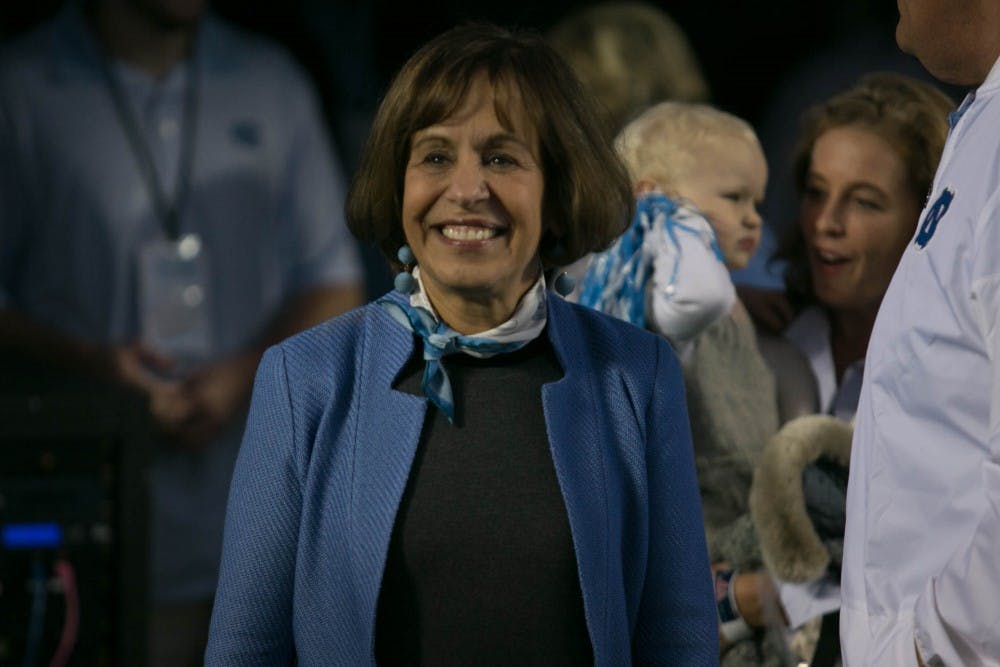In a year where debates surrounding Silent Sam have taken precedence in campus discourse, many University Day speakers emphasized the need to carry the lessons of UNC’s past into its future.
On its 225th birthday, UNC administrators, faculty, staff and students looked back on its checkered history to help UNC adapt to a modern age.
Chancellor Carol Folt opened the University Day ceremony with remarks on UNC’s mission to provide an accessible, affordable and excellent education to all students. Folt acknowledged the debt owed by UNC to the indigenous people of North Carolina and the slaves who built the University.
“As chancellor of the University of North Carolina at Chapel Hill, I offer our University’s deepest apology for the injustices of slavery, our full acknowledgement of the slave people’s strength in the face of their suffering and our respect and indebtedness to them, and I reaffirm our University’s commitment to facing squarely and working to right the wrongs of history, so they’re never again inflicted,” Folt said.
A long round of applause from the audience followed and Folt continued, expressing her hope to see UNC learn from its history — bad and good.
“Our apology must lead to purposeful action, and it must build on the efforts and the sacrifices of so many across the years who fought so hard for much of what we value at Carolina today,” Folt said. “If done with honesty and resolve, with strength and purpose, our choices will help us come to terms with our past and move to the better future.”
The keynote speakers continued the theme of carrying the echoes of history into the future.
James Leloudis, a UNC history professor, reminded the audience of the University’s past struggles with inclusion and equality, from its beginnings as a university for the elite, to its place in the midst of antebellum white supremacy, to its gradual diversification in the 20th century.
“A new voice found favor amongst a new generation of aspiring students, who demanded that the University open its doors to all North Carolinians,” Leloudis said.




